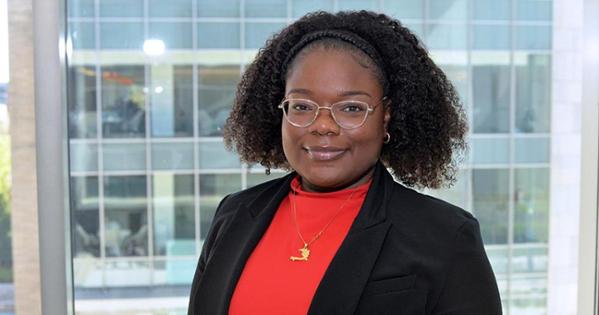Championing Access to Justice

For 3L Victoria Paul, the decision to pursue law wasn’t about prestige or profit—it was about purpose. She came to law school with a clear mission: to advocate for marginalized communities and to understand the law deeply enough to change it.
“I came to law school to pursue justice for marginalized communities and to familiarize myself with the law so I could help change it,” she said.
Drawn to WCL for its commitment to public service and its prime location in the nation’s capital, Paul found a community that matched her values. The opportunity to learn from mentors and legal experts in DC helped shape her perspective and fueled her passion for public interest law.
“Students and alumni genuinely look out for one another—it’s a place where people want you to succeed,” she says.
Her undergraduate experience was centered on student-focused advocacy. In law school, she decided to shift her focus to community advocacy and projects that helped those outside of the WCL community. She conducted informational interviews with field practitioners and made a concerted effort to build strong relationships with faculty and administrators.
“I wanted to ensure my extracurricular activities would help to sharpen my professional skills in a real-world setting,” Paul said.
And they did. Paul’s time in law school journey is marked by a series of impactful roles: S Marshall-Brennan Constitutional Literacy teaching fellow, dean’s fellow, and a member of the United Nations Model Law Drafting Group, where she assisted in the creation of a model law on consumer product safety. As technology editor of the Administrative Law Review, she hosted and produced its podcast, A Hard Look, which features conversations with scholars and experts to make administrative law more accessible. She was also named a Robert A. Shuker Scholar and received the Peter M. Cicchino Award for Outstanding Advocacy in Public Interest.
Most notably, she was selected as Justice Catalyst Fellow. As a fellow, she interned with the Lawyers Committee for Civil Rights, where she worked on cases addressing systemic discrimination.
“Being named a Justice Catalyst Fellow was an affirming opportunity—it confirmed I was on the right path,” she said.
After graduation, Paul will continue her work at the intersection of law and equity as a John Robert Lewis Fellow, with a focus on racial health disparities and the reform of biased clinical algorithms.
“As a John R. Lewis Fellow, I hope to learn from his philosophy—particularly his emphasis on approaching civil rights work through peace,” she said.
To future law students still on the fence about a legal education, Paul offers this advice: “If you’re debating whether law school is right for you, just take the leap. You deserve to be here. No matter your interest, your legal training will always be a valuable skill.”